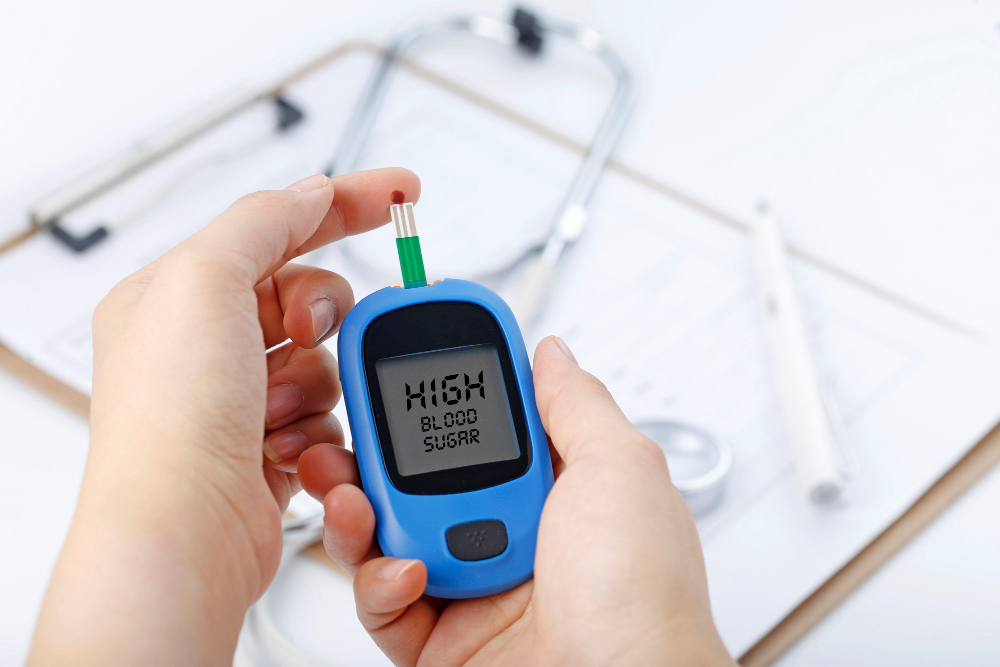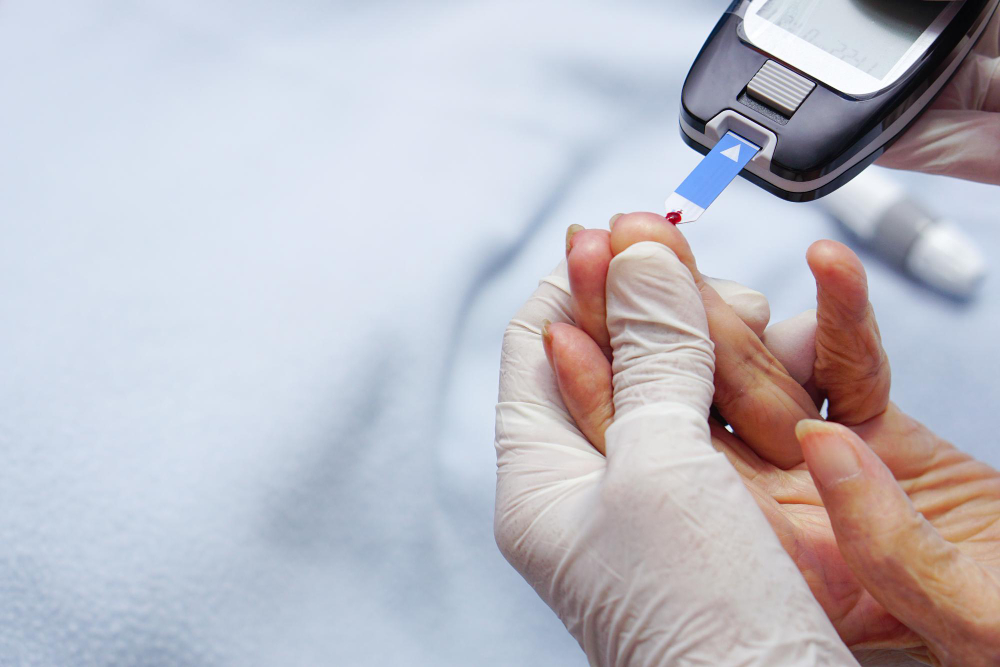Myths & Facts About Diabetes

MYTH 1: If you’re overweight, will you always develop type 2 diabetes?
Fact: Overweight is one of the risk factors for developing diabetes, but other risk factors regarding physical activity, family history, ethnicity, and age also play the role in developing diabetes. Many people think that weight is the only risk factor, but people moderately overweight or normal weight can also develop diabetes mellitus.
MYTH 2: If I eat too much sugar, I can get diabetes.
Fact: Eating sugar does not cause diabetes. But one should still cut back on sweets and sugary beverages. The disease is thought to be caused by a combination of genetic and lifestyle factors. Being overweight can increase a person’s risk of developing type 2 diabetes, and eating a lot of sugar can increase weight. If your family has a history of diabetes, eating healthy and exercising regularly is recommended to keep everyone’s weight in check.


MYTH 3: Diabetes is a serious disease
Fact: Yes. Diabetes causes more deaths per year and having diabetes nearly doubles the chances of having a heart attack or other complications. But you can manage diabetes and reduce the risk of complications.
MYTH 4: If I have diabetes, do I need to eat special foods?
Fact: If you have diabetes, you don’t have to eat special foods. Packaged foods with special “diabetes-friendly” claims may still raise blood glucose levels and be more expensive.
A healthy meal plan for people with diabetes is generally the same as healthy eating for anyone. In general, a healthy eating plan for diabetes will include lots of non-starchy vegetables, limiting added sugars, swapping refined grains for whole grains and prioritizing whole foods over highly processed foods when possible. These recommendations are similar to what everyone should be eating. Talk to your doctor to plan a healthy and balanced meal plan.


MYTH 5: If I have diabetes, can I eat starchy foods, such as bread, potatoes, and pasta?
Fact: Starchy foods can be part of a healthy meal plan, but portion size should be checked. These foods tend to have more carbs and eating them will raise your blood sugar levels.
MYTH 6: I am suffering from diabetes. I cannot eat carbs.
Fact: Not necessarily to suggest that people with diabetes need to avoid carbs, though some people choose eating plans that avoid them. In fact, the evidence suggests that including the right amounts of healthy carbs, protein, and fat can help manage your blood glucose levels. Work with your doctor and nutritionist to help you find the right balance of meal plans.


MYTH 7: I have diabetes, so I can never eat sweets.
Fact: Sweets are full of simple sugars, which increase the amount of glucose in your blood more than other foods. Sweets and desserts can be eaten in a very small portion and save them for special occasions, so you focus your meals on healthier foods. Talk with your doctor to help you determine an individualized meal plan that takes into account your goals as well as your likes and dislikes.
MYTH 8: Diabetes is contagious.
Fact: Diabetes is an endocrine disease and is basically caused by a problem with the amount of insulin produced by the beta cells in the pancreas. Diabetes tends to be an inherited trait that runs in families and it is not contagious.


MYTH 9: People with diabetes go blind and lose their legs.
Fact: Diabetes is a leading cause of blindness and leads to amputations each year. Managing blood pressure, glucose, weight, and quitting smoking can significantly reduce the risk of complications for individuals with diabetes, such as blindness and amputations.
MYTH 10: Are people with diabetes more likely to get colds and other illnesses?
Fact: People with diabetes are not inherently more likely to catch colds or other illnesses. However, diabetes can affect the immune system, making it somewhat harder for the body to fight infections. Therefore, it’s crucial for people with diabetes to prioritize a healthy lifestyle, including proper nutrition, regular exercise, and consistent blood sugar monitoring, to support their overall well-being and immune function.


MYTH 11: If you have type 2 diabetes and your doctor says you need to start using insulin, does it mean you're failing to take care of your diabetes properly?
Fact: Using insulin to get blood glucose levels to a healthy level is not a bad thing. When first diagnosed, many people with type 2 diabetes can keep their blood glucose at a healthy level with a combination of meal planning, physical activity, and taking oral medication. But over time, the body gradually produces less and less of its own insulin, and eventually, oral medications may not be enough to keep blood glucose levels in a healthy range, as type 2 diabetes is a progressive disease.
MYTH 12: My doctor says I have borderline diabetes, so I do not need to worry.
Fact: Prediabetes is the term used for those whose blood sugar levels are not in the diabetes range but are too high to be called normal. Prediabetes means that you are at high risk of developing diabetes within 10 years. You need to lower your blood sugar levels to normal by using a healthy diet and exercise plan.
Talk to your doctor about your risk of diabetes and what you can do to lower your risk.


MYTH 13: Fruit is a healthy food. Therefore, it is OK to eat as much of it as you wish.
Fact: While fruits are indeed healthy and provide essential nutrients, it’s important to consume them in moderation. Fruits contain natural sugars, and excessive intake can contribute to an overconsumption of calories and sugars, which may affect blood sugar levels. Talk to your dietitian about the amount, frequency and types of fruit you should eat.
MYTH 14: Diabetes in women prevents them from having children
Fact: Having diabetes does not inherently prevent women from having children.
Women who manage their diabetes well can have a normal pregnancy and give birth to a healthy baby.


MYTH 15: It is not safe to exercise with diabetes.
Fact: Getting regular exercise is an important part of managing diabetes. Exercise helps boost your body’s sensitivity to insulin. It can also help lower your A1C, a test that helps tell how well your diabetes is controlled. A good goal is to aim for at least 150 minutes per week of moderate-to-vigorous exercise like brisk walking. Talk to your doctor to make sure your exercise program is safe for you and learn how to take your medicines when you exercise or how to adjust the dosage of medicines, such as insulin, to prevent low blood sugar.
MYTH 16: I can stop taking diabetes medicine once my blood sugar is under control.
Fact: Some people with type 2 diabetes are able to control their blood sugar without medicine by losing weight, eating a healthy diet, and doing regular exercise. But diabetes is a progressive disease, and over time, even if you are doing well to stay healthy, you may need medicine to keep your blood sugar within your target range.

Have Medical Queries?
Kindly drop your questions here –
wockmed@wockhardt.com